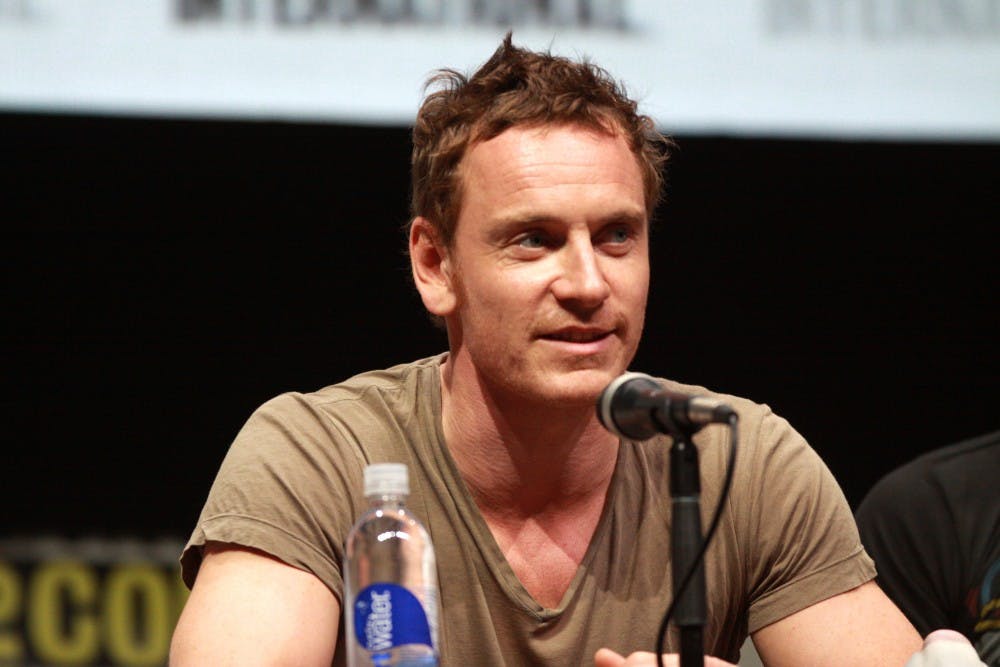
When I first heard about Steve Jobs the movie, directed by Danny Boyle and written by Aaron Sorkin, I was extremely apprehensive. In the first place I wasn’t a fan of the title which makes the film somewhat confusing to discuss. It’s easy to confuse the film for the man.
But the bigger issue is that in the roughly four years since Jobs’s death there have been no less than a half dozen films about him put into circulation. Ranging from character dramas to documentaries, each one claims to be the definitive depiction of the man, and his portrayals have ranged from almost cruel and domineering to nearly saint-like in his artistic vision. I’ve sometimes said jokingly that how one sees Steve Jobs really boils down to how many Apple products someone owns.
That being said, with so many opinions and films trying desperately to peel back the layers of this man’s psyche, the truth almost feels like it gets lost in the confusion. Every detail of the man’s life has been pulled out and put under a half dozen microscopes, which all tell us something different about him. What then could Steve Jobs possibly add to this cacophonous mess?
Steve Jobs depicts three key events in the life of its titular protagonist (played to perfection by Michael Fassbender). Set just before the official reveals of three of his projects, the film largely focuses on the veritable roller coaster that was Jobs’s career at Apple.
Along the way we’re given glimpses into facets of Jobs’s personal and professional issues. His abrasive and aggressive personality puts him at odds with nearly everyone around him, his grandiose plans always rapidly deteriorate and his ultimate “progressive” vision only serves to alienate him from the reality he finds himself stuck in.
To make matters worse, a familial ghost of Jobs’s past haunts him every step of the way in the shape of an estranged daughter and lover, which further complicates just who and what this man values. As his world crumbles around him, audiences are left wondering — how will this man become what we think he is? Moreover, does he even deserve to?
True-to-life setting aside, Steve Jobs is purely and unmistakably a character drama. Cut through the tech-talk and shiny Apple skin, and what we’re left with is a piece about how this man fits into the world (or, rather, how he refuses to fit).
It would have been incredibly simple to portray any of the characters here as either in the wrong or in the right, but the film typically shies away from doing so.
While Fassbender’s Jobs may be arrogant, abrasive and downright mean-spirited at times, it is difficult not to get taken in by his passion. Secondary characters do an equally exemplary job.
Seth Rogen, portraying Jobs’ long-time associate Steve Wozniak, brings such an earnest charm to the role that it’s almost heartbreaking every time these two men butt heads.
That’s not to say the film is all drama, drama and drama. Fassbender, Rogen and a number of other cast members are all enormously funny men – Michael Stuhlbarg as Andy Hertzfeld come to mind. Their biting, sarcastic quips are able to cut through even the most gripping intensities making sure the laughs come just as easily as the gasps.
Praise aside, the film is not without its share of issues. Because communication breakdowns are so common between characters, many scenes tend to drag on a bit too long, and the film constantly retreads through information that we’ve already been given.
Additionally, despite having the film set across the span of roughly a decade, the development of certain plot points is fairly minimal. This becomes apparent at the third and final product launch where several story points that weren’t even mentioned in the entire second act are finally brought home to roost. While likely an attempt to bring the film full-circle in some ways, in effect it does throw the pacing a bit askew.
The second or middle segment feels the least important to the overall narrative arc of the film since the first and third have far more in common with one another.
While pacing issues are really the biggest issue the films suffers from, it still holds up remarkably well. Would I go so far as to claim it’s the definitive Steve Jobs film, as so many others likely will? No I won’t. I don’t think it’s possible to say that at this point, and there will always be an alternate interpretation.
Luckily I’m not here to judge whether or not the film does the man justice. That’s not what is important. The simple fact of the matter is that Steve Jobs is an engaging and emotional film that has no problems standing on its own. While perhaps not a must-see, the film certainly does its job well.
Now if only it had a better title.
Overall Score: 8/10





